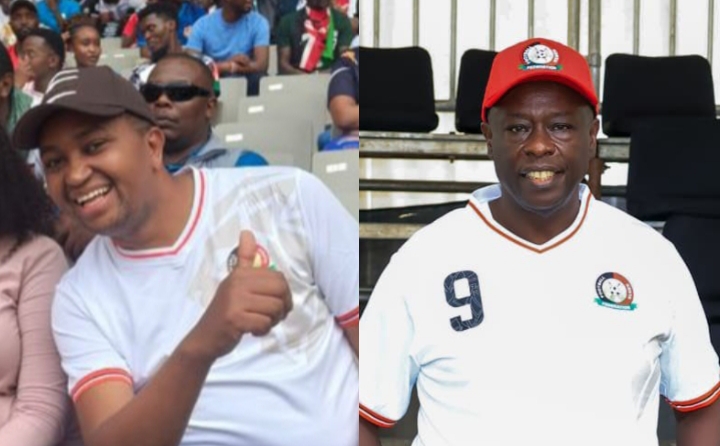The CHAN tournament quarterfinal clash at Kasarani Stadium was supposed to be another proud moment for Harambee Stars, but instead it ended in heartbreak and a storm of anger directed at former Deputy President Rigathi Gachagua and politician Irungu Nyakera.
Kenya had been riding high with impressive wins against top teams, and confidence was at its peak.
Fans were certain the national team would overcome Madagascar and keep the dream alive. But the presence of Gachagua and Nyakera on that night turned joy into despair, with many Kenyans now calling them a curse to the team.
For weeks, Harambee Stars looked unstoppable. The players showed grit and determination, defeating teams that many thought would be too strong.
The nation was finally united in celebration, and football felt like a source of hope again. But that all changed when Gachagua returned from his stay in the United States. His comeback coincided with a sudden dip in energy and fortune.
The game ended in a 1-1 draw before Kenya fell 4-3 on penalties, a result many believe was written the moment the two politicians walked in.
To many, their presence symbolized failure, the same way their politics has left a bitter taste in the mouths of Kenyans. One fan summed up the feeling in simple words: “Everything was fine until Rigathi came back. The curse is real.” Others echoed the same, branding the loss the “Rigathi Effect,” insisting his track record of division and bad luck had now spilled into football.
Nyakera, as Gachagua’s close ally, has not been spared either. His decision to sit alongside the former deputy president reinforced the belief that the two carried with them a bad omen.
Instead of being viewed as supporters of Kenyan football, they became symbols of doom. Fans mocked their presence as a jinx, pointing out that Kenya only started losing once Gachagua reappeared. Their reputation for failure in politics followed them into the stadium, and Harambee Stars paid the price.
The anger is not just about superstition. For many Kenyans, this loss reflects deeper frustrations with leaders who constantly disappoint. Gachagua’s years in office were full of controversies and divisions, and Nyakera’s association with him only worsens the image.
Instead of lifting spirits, they reminded fans of betrayal, empty promises, and missed opportunities.
The defeat to Madagascar has now been tied to more than just missed penalties. It has been framed as another example of how bad leadership poisons everything it touches, even the national sport. For supporters, the “Gachagua curse” is not just a joke; it is a reflection of how low confidence in such figures has sunk. In their eyes, Kenya deserves leaders who inspire victories, not ones whose presence drags the country down.
Harambee Stars may recover from this loss on the pitch, but the stain left by Gachagua and Nyakera will not fade easily.
The pain felt by millions of fans has been pinned squarely on them. Instead of being remembered for supporting the team, they are now blamed for killing its spirit.



